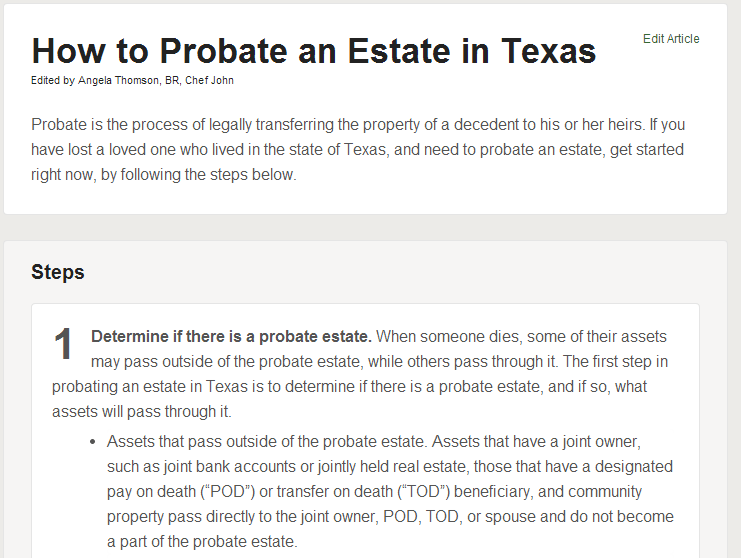What Happens When Your Case Goes To Probate in Texas

Knowing how to settle the affairs of a loved one is always a good idea; it makes things easier for everyone involved to know what goes on whenever a case goes to
probate in Texas. It might not even reach there. Texas’ probate code has exemptions to the rule of going to probate when resolving estate issues. Wikihow discusses how to check if an estate is covered by the exemptions:
“Determine if a small estate affidavit may be used in place of the probate process. If a decedent dies intestate (without a Will) AND the value of the probate estate is $50,000 or less, the heirs of the estate may be able to transfer property using a sworn statement, or affidavit, of entitlement [2]. For a complete list of the conditions for using a small estate affidavit, see the Travis County Court’s Small Estate Affidavit Checklist. If a small estate affidavit is appropriate, you may use this Small Estate Affidavit form provided by the Cameron County Clerk’s Office.” Texas is known for its ease of probate processing, and the above exemptions help with that ease. The other half of it is the fact the state has “independent administration” of estates. This means a lot of will executors can do things without the supervision of the court. It’s more efficient and less expensive than dependent administration, which has the probate court checking on the estate regularly. Of course, there is always a fly in the ointment. Texas may make it easy for a layman to administer estates, but disgruntled heirs or beneficiaries can still file a
will or trust contest, depending on what is being contested. A will is a straight-forward issue, but for trust funds you will want a probate lawyer who knows what they’re doing like David Munson. This is why it is best to have a competent probate lawyer to consult with when dealing with such cases in Texas.
(Source: How to Probate an Estate in Texas, Wikihow, undated)











